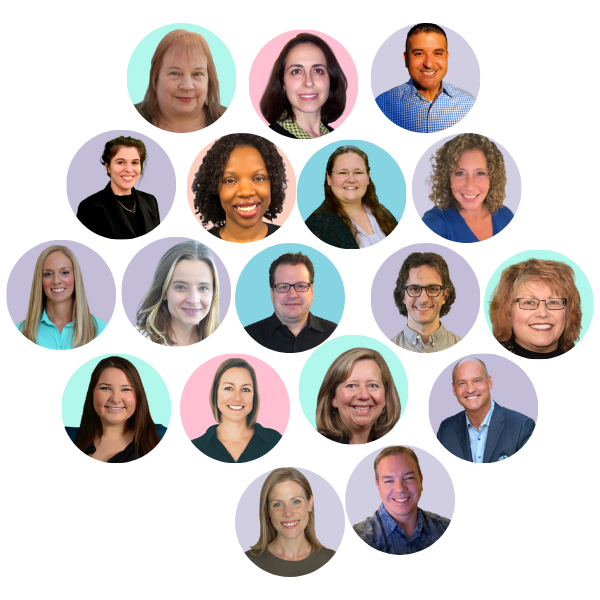
Our acronym S.A.F.E., for Social, Academic, Financial, and Employment, highlights the factors that can help you decide which colleges are a good fit for you. College is a huge financial investment that will have a major impact on the rest of your adult life, so you want to choose a school that advances your career goals and prepares you for your future.
Choosing a college based on the right employment fit can be difficult at first. Many high school students still aren’t sure what career paths they want to pursue. But, if you do know what profession you wish to pursue (or even if you can just narrow the range of possibilities down to a few options) prior to beginning your college search, it can make it much easier to find the right colleges to apply to. Making career plans prior to college can also help you to avoid taking required courses in a field that you don’t end up pursuing, improving the return on your educational investment.
Students can generally change their major or goals as they progress through school, but having an initial idea of what you want to do can save you time and money.
How to Choose a College Based on Your Employment Fit:
To learn how you can choose your college based on your employment fit, stick around. We’ll talk about the specific steps you should take here.

Your College Admissions Journey, Mapped Out!
Introducing our college planning timeline with a handy checklist of essential tasks, a step-by-step guide for every grade level, from freshman to senior year, AND financial aid, college applications, extracurricular activities, and more.
Narrow Your Choices For a Career Path
Narrowing your educational and career options can be a daunting task for any student, but to succeed in college, you’ll need to focus. A college degree may serve many purposes: it may provide social or other cultural connections, it may satisfy personal desires for knowledge or creativity, it may develop you as a better citizen or general human being, or it may deepen your spiritual connection with your faith. But, because college generally requires a tremendous investment of time and money, most students also hope that it will also render them more employable. Having a career plan in mind as you choose your college will help you to pick schools to apply to that align with your career goals so that you do not find yourself struggling with college debt.
Deciding what profession to pursue for the rest of your life is no easy choice. But, there are many ways to figure out what career options may best suit you.
Consider what classes you enjoyed in high school. Were there any specific subjects that you really interested you? What about hobbies or jobs you’ve worked on over the years? Are there fields of study or career options that align with extracurricular activities you’ve pursued over the past few years? Really think about what you enjoy doing and learning about. Consider talking to your guidance counselor, teachers, mentors, and other adults in your life, as they might have insight into which career paths might suit you.
Figure Out Why You Chose Your Career Path
Once you’ve narrowed your options, think about why you want to pursue your chosen field. You should have a good reason for choosing your intended field of study.
There are many different reasons students may decide on a specific employment path. You may want a certain lifestyle; like living in a large city or a house overlooking the ocean. Perhaps you are interested in learning more about specific topics and skills. Maybe your family owns an intergenerational business you’ll take over one day. Regardless, understanding why you want to pursue a certain career can help a lot when it comes time to choose and attend school. You will know what you want to study, and why you are studying, and you can look between different program options and identify the best choice for you.
Research Your Career and Its Educational Requirements
After making your choice and determining why it is the best option for you, we recommend doing some research on your chosen career path. Depending on what kind of work you plan on pursuing, there could be different educational requirements.
Pro Tip: Reach out to professionals in the industry for a better understanding of the daily responsibilities and continuing education requirements.
Many careers—including medicine, engineering, teaching, and psychology—require specific degrees and training. You might even need to go to graduate school, medical school, or law school after college, depending on what you want to do.
Keeping this in mind, make sure that your chosen college will help support you on your path toward employment. Be certain they have the right majors, educational programs, active recruitment, and accreditation.
Certain schools will definitely be a better fit for certain employment options. For instance, one school might have a better program in your chosen field and even offer an accelerated program that can get you on track for employment faster.
Think about Your Prospective Schools’ Locations
Another factor you may want to consider as you choose schools to apply to is location. This isn’t the most important factor when considering employment fit, but if you decide that you want to live and eventually work in a certain part of the country, this could be a major part of your decision. Certain areas might have more demand for your line of work. If you’re an aspiring marine biologist, the University of Kansas probably won’t suit your needs, but if you want to pursue agricultural science so that you can one day take over your family, NYU might not be the school for you.
Location can also impact the price of your tuition and your level of comfort. In short, certain areas of the country might be better suited for you and what you plan on doing while you are still in school.
Look at Other Majors Related to Your Field
In addition to looking at programs and majors directly related to your employment fit, you also want to see if schools have majors related to your job field. Some schools won’t have the exact job title you are looking for, so you might have to major in something that is adjacent to your field. Look into this before you decide to attend any school.
See What Academic Opportunities Are Available
Academic opportunities are one of the most critical factors in choosing colleges based on employment fit. Of course, you want to attend a school that offers high-quality education, but you should also choose schools that have the right majors and programs, and that offer plenty of resources for students who are interested in your hoped-for career.
Consider schools that offer better internship options, strong career services centers, great academic counselors, and plenty of chances to network and make connections with future employers. Depending on the size of the school and its funding, you might have better or worse academic and professional networking opportunities.
Take a Campus Tour and Do Research on Specific Schools
Finally, we highly recommend going on a campus tour and doing more research on the schools you like. Looking at schools online through video and pictures can be helpful, but you want to visit your preferred campus in person. This way, you can get a feel for campus life, academics, and other aspects of your educational experience.
As you decide what kind of campus environment you want, look at a range of different schools. Some students might like smaller school environments for more one-on-one attention. Other students might prefer a larger public school that has a more active campus life. And other students still might prefer a small community college to save money.
These few short tips can help ace your college journey.
The choice is up to you, but remember that you will likely be attending your chosen college for the next four years, so make sure you take your professional goals into account as you’re making your decision. Four years is a long time to spend training for a career you’re not interested in pursuing!
For more information about choosing a college read these posts:
https://sayhellocollege.com/blog/need-help-deciding-on-your-college-major/
And remember, if you need any advice or assistance, we are here to help. HelloCollege offers expert consulting in financial aid and college enrollment to students just like you.



